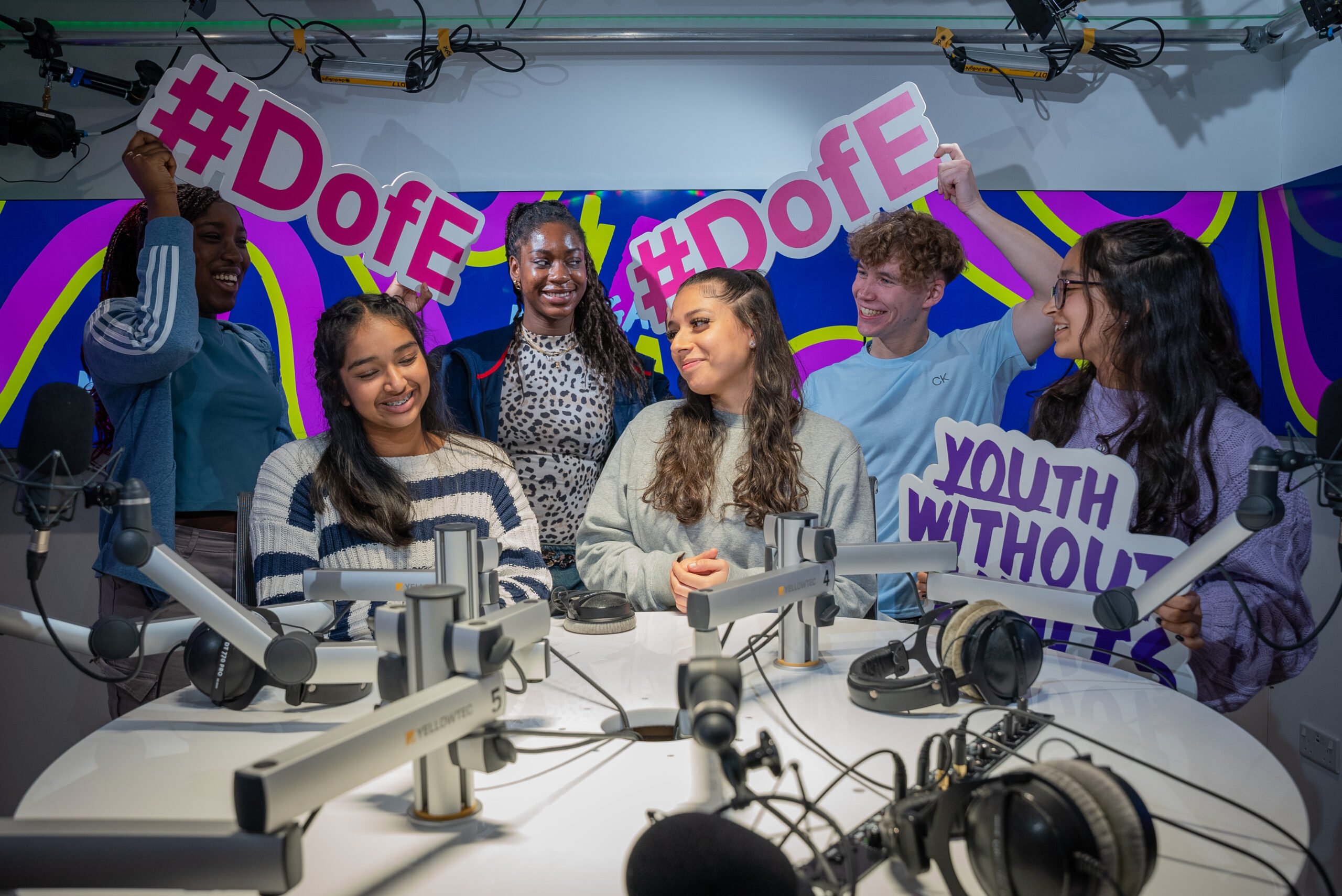New research shows DofE participation boosts young people’s wellbeing, skills, community ties and physical activity

Our brand new 2024 Impact Report shows young people who take part in the DofE experience positive impacts on their wellbeing, skills development, community ties and physical activity levels.
Read our 2024 Impact Report Download our Impact Report (PDF)
The report, which analyses data from 40,880 participants, presents the outcomes of our innovative Impact Measurement Framework for the first time. The framework uses a groundbreaking open data methodology to measure the difference taking part in the DofE makes to participants, comparing DofE data with UK-wide youth population data in some key areas.
The research shows statistically significant improvements in three out of four wellbeing measures – life satisfaction, happiness and feelings of doing things in life that are worthwhile. Improvements in life satisfaction are higher for girls and young women, young people from minority ethnic backgrounds, and those who reported poor or fair health at the start of their DofE.
Using best practice methodology set out in the 2021 HM Treasury Green Book, we’ve calculated that life satisfaction improvements experienced by DofE participants have an estimated average social value of £4,400 per person. In 2023/24, 155,502 young people achieved a DofE Award – equating to a total social value of more than £684m.
Crucially, the data suggests participation also seems to act as a protective factor – helping to counteract some of the negative trends in young people’s wellbeing during adolescence seen in the UK youth population.
Anxiety in young people over the course of their DofE appears to follow the same pattern seen in national data, increasing with age. However, while data from participants and UK youth data show the same starting point for anxiety at age 16, the increase by age 18 is less for those doing their DofE.*
Ruth Marvel OBE, CEO of The Duke of Edinburgh’s Award, said: “Today’s young people are growing up in a uniquely uncertain and challenging world. More than ever, we need to find ways to support their development, safeguard their wellbeing and help them build the skills and independence they need for adult life.
“Our Impact Report paints an encouraging picture of the difference DofE participation makes in these areas – but this is just the beginning. We look forward to building on our evidence base in the years to come to ensure that all young people can access the high-quality enrichment and personal development support they need and deserve.”
The DofE Impact Report also finds:
- Statistically significant improvements in six out of seven skills measures, including confidence, problem-solving, emotional management, resilience and initiative.
- Statistically significant improvements in all three community ties measures, including trust in their local area, belonging in their communities, and agency – the feeling that young people can make a difference to the world around them. On completion, 78% agreed or strongly agreed with the statement “I feel like I belong in this neighbourhood” – much higher than the proportion nationally, which stands at just 53%.*
- An increase in levels of physical activity, with the proportion of young people reporting they had done 30 minutes or more of physical activity between five to seven days a week increasing from 54% to 59%.
We now plan to adapt the Impact Measurement Framework for young people taking part in Special Educational Needs and Disabilities (SEND) settings and prisons and young offender institutions, and increase our efforts to understand the value of participation and longer-term outcomes for participants.
Unique methodology
The DofE’s tailor-made Impact Measurement Framework asks participants aged 14-24 a series of questions at different stages of their experience – from starting out, to achieving their Award.
These questions have been carefully chosen from government and academic surveys to align with the outcomes in our Theory of Change and allow comparison to national datasets and the youth population in the UK.*
The DofE dataset analysed in our Impact Report included 40,880 responses from young people before and after achieving a Bronze, Silver or Gold Award between July 2022 and July 2024, and is broadly representative of all participants.
The dataset was also explored by social impact experts State of Life, who used a range of statistical techniques in their analysis, providing confidence in the robustness and validity of the findings about DofE programmes.
We have also built an innovative safeguarding alert process into the Impact Measurement Framework, ensuring that young people who respond with answers indicating low wellbeing are supported by a trusted adult in a timely way.
Footnotes:
* The UK government defines social value as “all significant costs and benefits that affect the welfare and wellbeing of the population”. We measured social value following HM Treasury guidance so we could confidently assess the value created using a standardised approach and measures. We then converted that into a monetary value using the WELLBY measure (see our technical report), so we were able to compare the magnitude of benefits created in a common currency and make it possible to compare that with costs.
* National data for anxiety is more difficult to match because it generally isn’t asked to those under 16. This national data comparison is from Active Lives Adult data, between November 2021 and November 2022.
* UK Measures of National Well-being Dashboard – Office for National Statistics.
* For further information, see the technical report.




